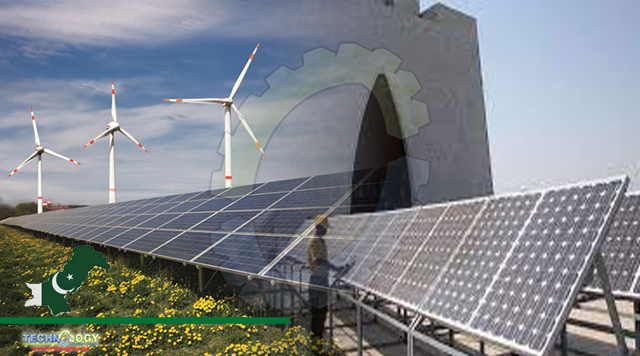Pakistan was encouraging private sector investment in renewable energy projects to reach its clean energy goal by 2030 and it would produce 60 percent of its electricity from renewable sources, he said while talking to Pakistan Television.

Adviser to Prime Minister on Climate Change Malik Amin Aslam on Sunday said Pakistan would become the world’s best example in green energy revolution as the government was on track to meet its renewable energy targets by 2030 and will raise it to 60 percent through renewable resources.
Pakistan was encouraging private sector investment in renewable energy projects to reach its clean energy goal by 2030 and it would produce 60 percent of its electricity from renewable sources, he said while talking to Pakistan Television.
He said the “green Pakistan” vision of Prime Minister Imran Khan aims to transform the country into lush green land with a clean environment for people and it was the topmost priority of the government.
Amin said Imran was committed to the challenge of initiating a green recovery through ecosystem restoration to protect nature and create much-needed green employment.
“Pakistan has made remarkable progress in recent years, bringing electricity connections and impressively scaling up the use of renewable energy, particularly solar,” he added.
He said Pakistan also set to approve its first-ever forest policy which aims to protect and promote the rational use of national forests, protected areas, natural habitats, and watersheds.
These ecological zones have immense significance and their restoration can improve livelihoods and human welfare, he added.
Talking about food security, he said the government has been adopting the policy of climate-smart agriculture initially with 8 districts to achieve food security and broader development goals under a changing climate and increasing food demand.
He said the government was taking revolutionary steps to develop technologies to address climate change issues, adding, the climate-smart agriculture would help increase sustainable productivity, strengthen farmers’ resilience, reduce agriculture’s greenhouse gas emissions and increase carbon sequestration.
The project aims to increase the income of households through enhancing employment potential and increasing agricultural productivity and production.
Replying to a question about agricultural land, he said to fight against overpopulation, vertical cities were the best solution and vertical cities could accommodate thousands of people in a building that could save the agricultural land.
He said all housing societies have to get a regular no-objection certificate from the government before starting their projects on agricultural land, adding that housing projects on non-productive, barren lands were preferred to reduce pressure on agricultural lands which would safe food baskets.
He said Imran was also focusing on cities’ master plans and introducing agriculture-friendly policies.
Amin said the economy performed beyond expectations with all major macroeconomic indicators showing a positive trend amid the Covid-19 pandemic, resulting in a 4 percent GDP growth rate this year.
The billion tree tsunami project would also help in achieving environmental goals, he said, adding, the measures were being taken under the prime minister’s vision for clean green Pakistan include nation-wide massive tree plantation and protection activities, promotion of renewable energy, shelving of coal-based energy projects, promotion of electric vehicles, mass transit system, the establishment of new national parks and protection of forests.
Originally published at Pakistan today